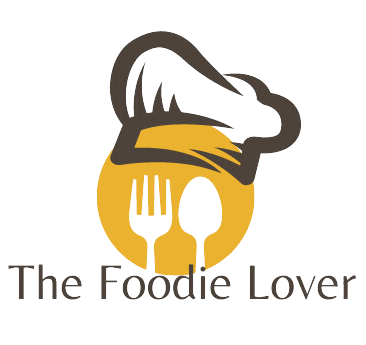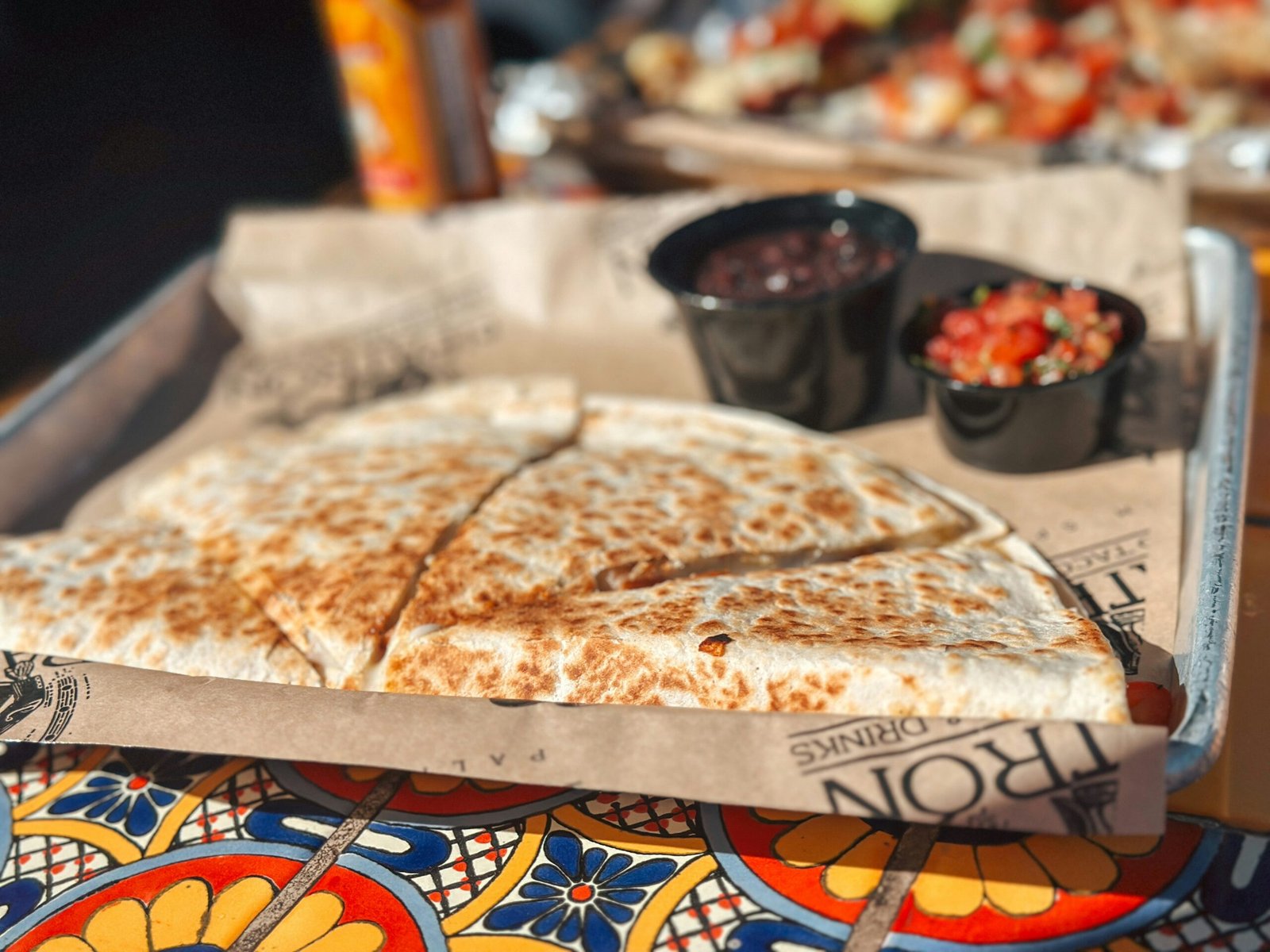Iron is essential for maintaining good health because it plays a critical role in the production of hemoglobin, a protein in red blood cells that carries oxygen from the lungs to the rest of the body. Adequate iron intake supports energy levels, cognitive function, and immune system health. Without enough iron, the body can’t produce enough healthy red blood cells, leading to iron deficiency anemia, which can cause fatigue, weakness, and impaired cognitive function. Therefore, consuming iron-rich foods daily is vital to ensuring your body functions optimally. Here’s a list of the top 20 foods rich in iron to help you stay healthy and energized.
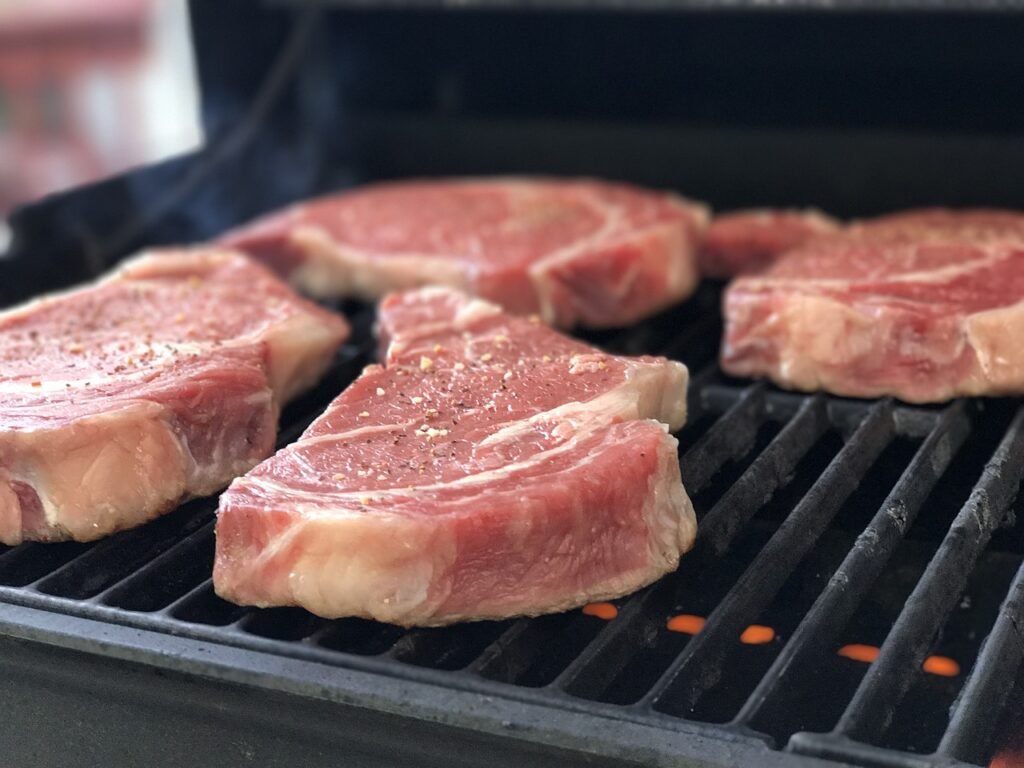
Red Meat
Red meat, such as beef and lamb, is one of the best sources of heme iron, which is easily absorbed by the body. Contains heme iron, which is more easily absorbed by the body compared to non-heme iron found in plant-based sources, making it an efficient way to meet iron needs. Additionally, red meat is rich in essential nutrients like protein, vitamin B12, and zinc, which contribute to overall health and well-being when consumed in moderation. A 3-ounce serving of beef liver, for example, contains around 5 mg of iron.
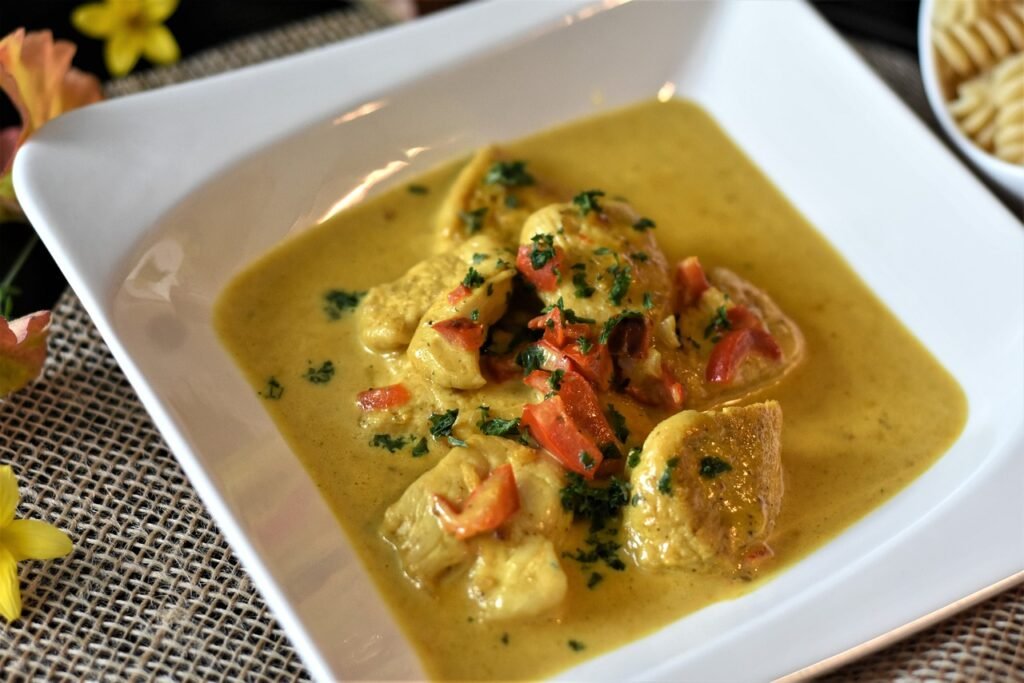
Poultry
Incorporating poultry into the diet offers numerous health benefits, including a rich source of iron. Poultry is a high-quality protein source, essential for muscle maintenance and repair, as well as supporting immune function and satiety. Additionally, poultry is versatile and can be prepared in various healthy ways, making it a convenient choice for balanced and nutritious meals.. A 3-ounce portion of turkey can provide about 1.1 mg of iron.

Seafood
Oysters, clams, and mussels are excellent sources of heme iron. Just 3 ounces of cooked oysters offer a whopping 8 mg of iron.
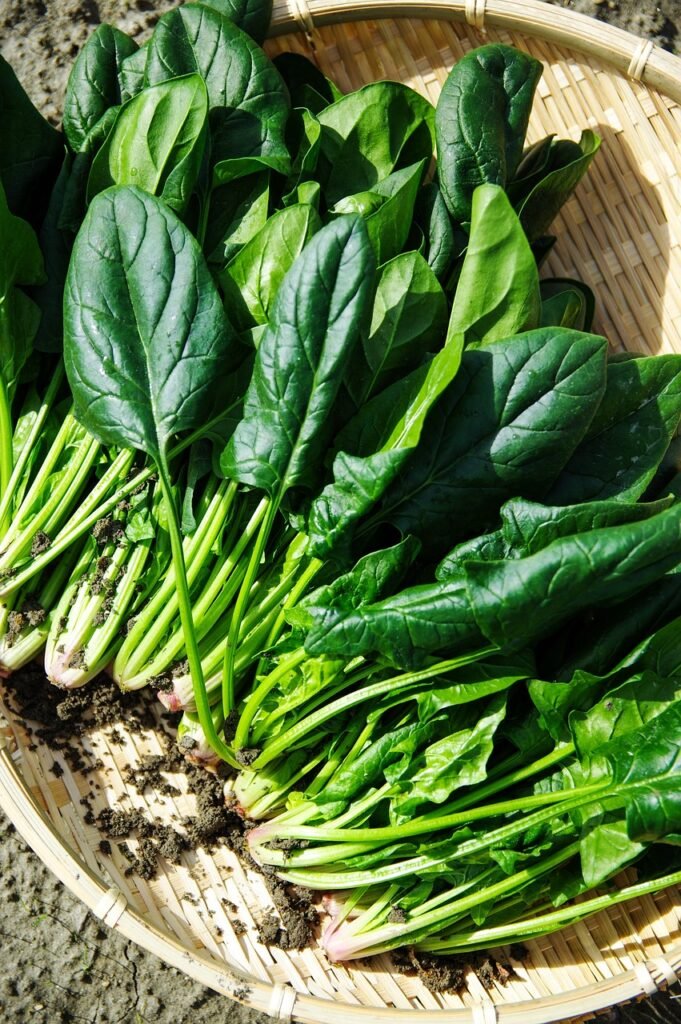
Spinach
Spinach, a vibrant leafy green, stands as a powerhouse of nutrients, notably boasting a substantial supply of non-heme iron. Just one cup of cooked spinach yields approximately 6.4 mg of iron, vital for hemoglobin production and efficient oxygen transportation in the bloodstream. Beyond its iron content, spinach is brimming with a plethora of vitamins, antioxidants, and fiber, rendering it not just a nutritious option but a promoter of holistic health and well-being.
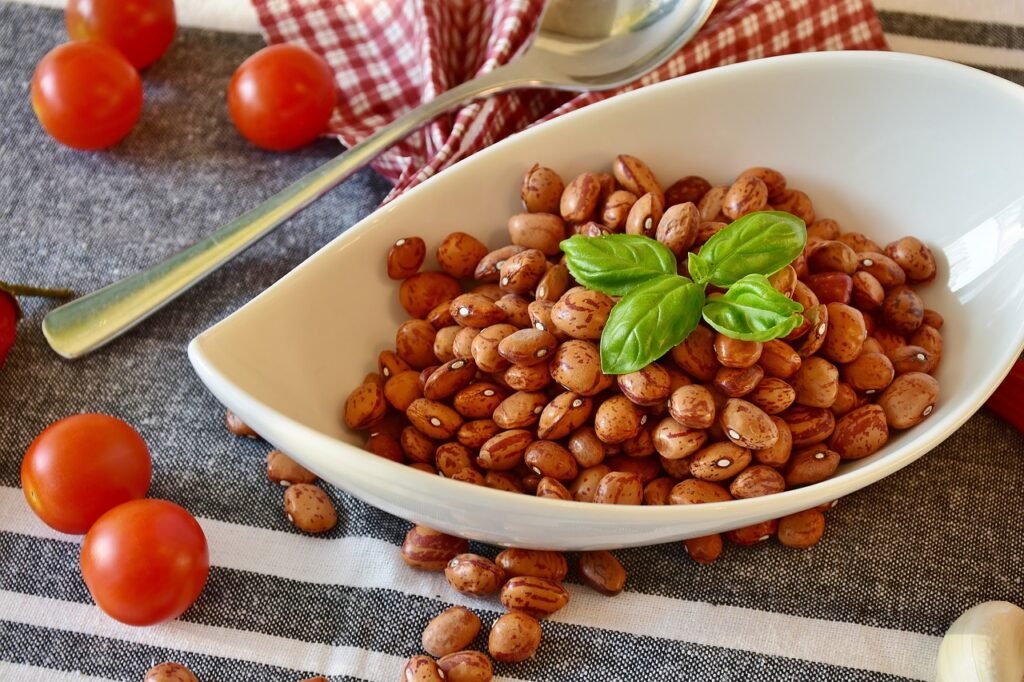
Legumes
Legumes such as beans, lentils, chickpeas, and soybeans are notable sources of non-heme iron, essential for various bodily functions. For instance, a single cup of cooked lentils offers approximately 6.6 mg of iron, contributing significantly to daily iron requirements. Unlike heme iron found in animal products, non-heme iron from plant-based sources may require additional dietary factors to enhance absorption, such as vitamin C-rich foods like citrus fruits or bell peppers. Nonetheless, incorporating these legumes into one’s diet provides not only a substantial iron boost but also delivers an array of other essential nutrients like protein, fiber, and various vitamins and minerals, fostering overall health and well-being.

Fortified Cereals
Fortified cereals are enriched with iron to address potential deficiencies and contribute to overall nutritional balance. Iron-fortified cereals typically include a variety of options such as bran flakes, whole grain cereals, and oatmeal. These cereals often contain added iron in the form of ferrous sulfate, ferric phosphate, or ferrous fumarate, among others, to enhance their nutritional value. By incorporating iron into breakfast options, fortified cereals serve as a convenient and accessible means to ensure individuals meet their daily iron requirements, particularly for those seeking plant-based or alternative sources of this essential mineral.
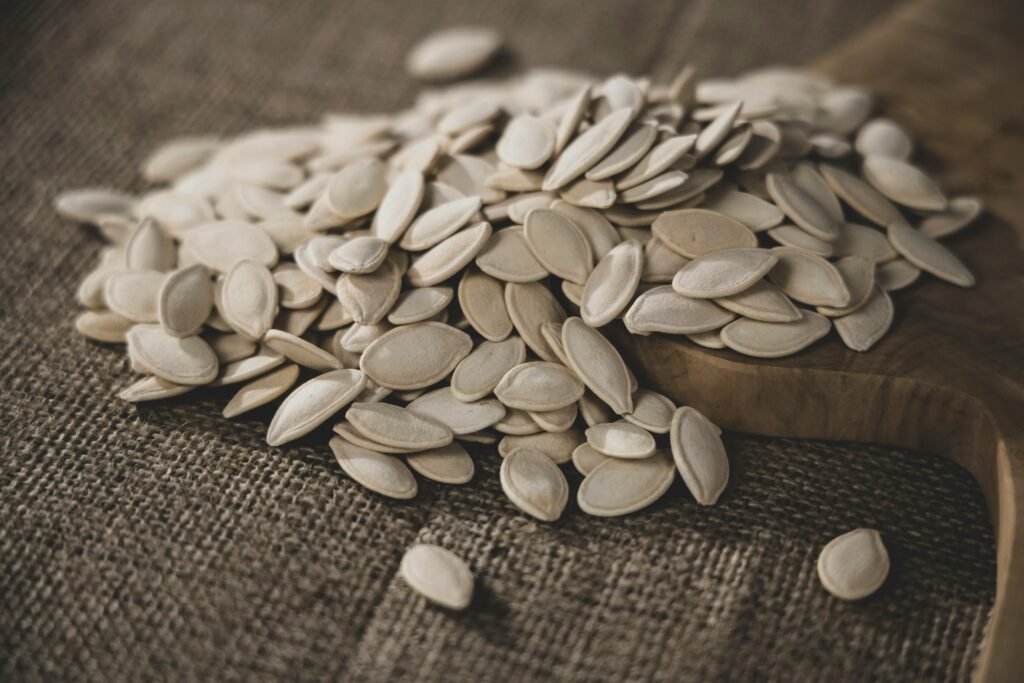
Pumpkin Seeds
Pumpkin seeds are rich in iron due to their natural composition. These small seeds contain a notable amount of iron, making them a valuable dietary source of this essential mineral. Incorporating pumpkin seeds into one’s diet provides a convenient and nutrient-dense way to boost iron intake. A 1-ounce serving provides around 2.5 mg of iron.
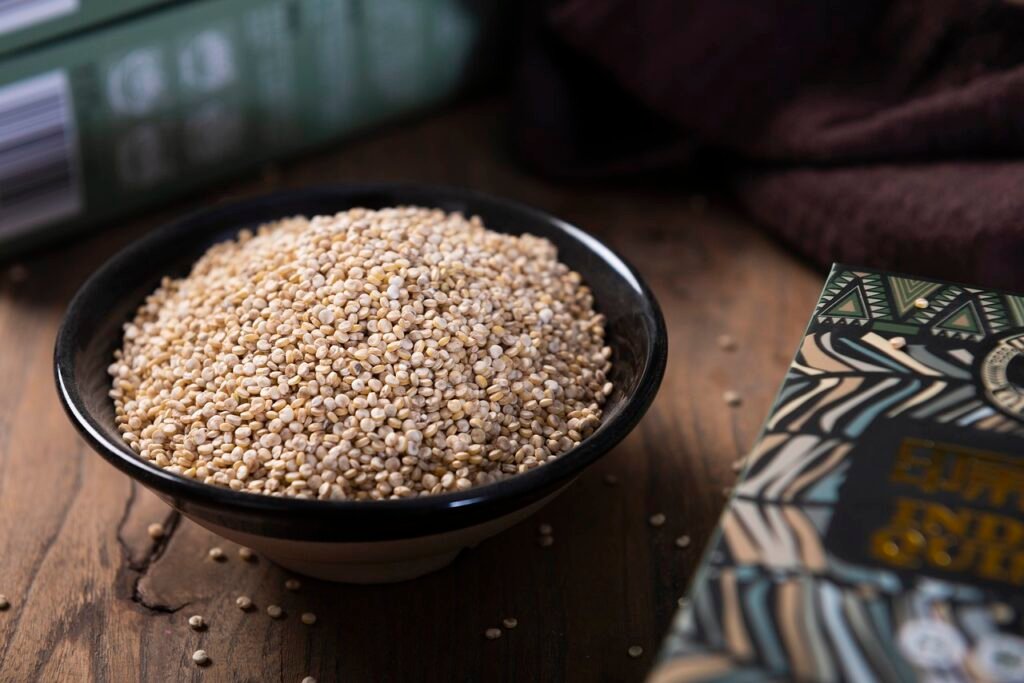
Quinoa
This versatile grain is not only high in protein but also in iron. One cup of cooked quinoa contains about 2.8 mg of iron.

Tofu
Tofu, a staple in many plant-based diets, delivers a wealth of essential nutrients such as iron, calcium, and magnesium. It is low in calories and saturated fats, making it an outstanding choice for maintaining a healthy weight and heart. Furthermore, tofu is an adaptable ingredient that can be seamlessly incorporated into various cuisines and cooking methods, offering a convenient and nutritious addition to any diet.. Half a cup of tofu provides around 3.4 mg of iron.
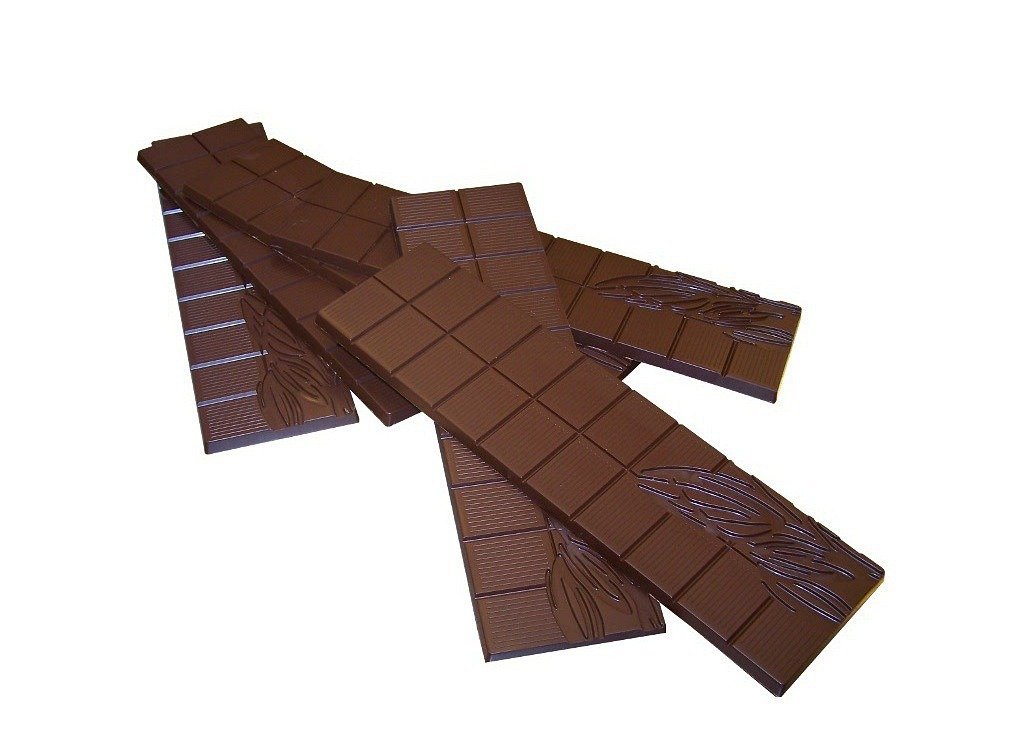
Dark Chocolate
Dark chocolate, in moderation, offers health benefits primarily due to its high cocoa content. Rich in antioxidants like flavonoids, dark chocolate has been associated with potential benefits for heart health, including improved blood flow and lower blood pressure. Additionally, it may positively impact mood and cognitive function. However, it’s essential to consume dark chocolate in moderation to avoid excessive sugar and calorie intake. A 3.5-ounce bar of dark chocolate (70-85% cocoa) has about 7 mg of iron.
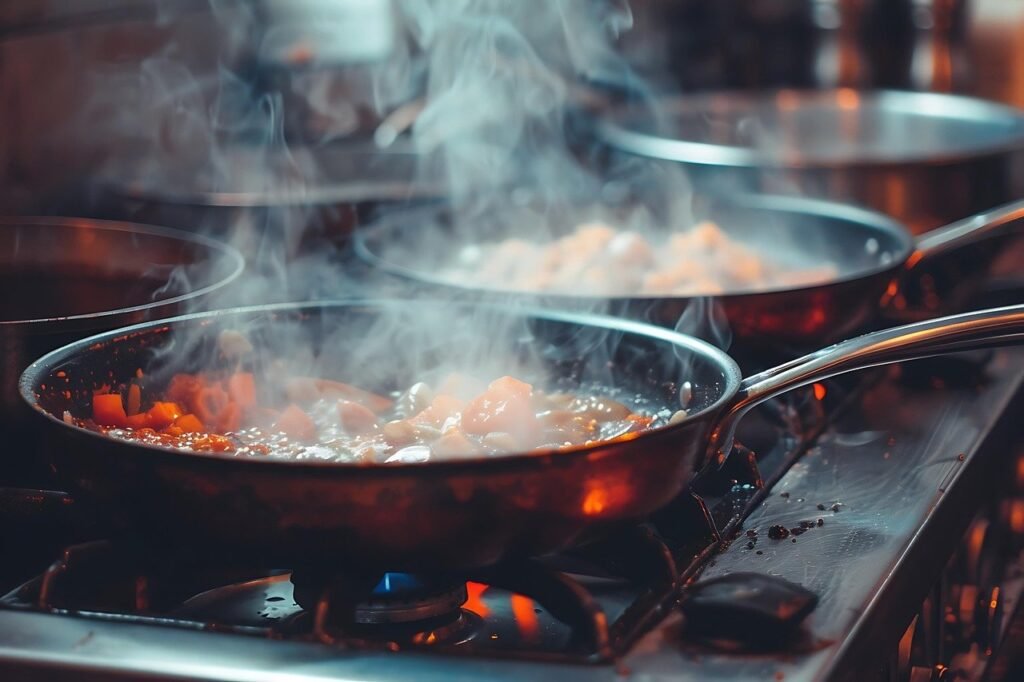
Beef Liver
Beef liver is considered a nutritional powerhouse due to its dense concentration of essential nutrients. It’s exceptionally rich in iron, as well as being a potent source of vitamin A, B vitamins, and protein. Incorporating beef liver into the diet can help support overall health by providing a significant boost of essential nutrients in a single serving. Just 3 ounces of beef liver can provide up to 5 mg of iron.
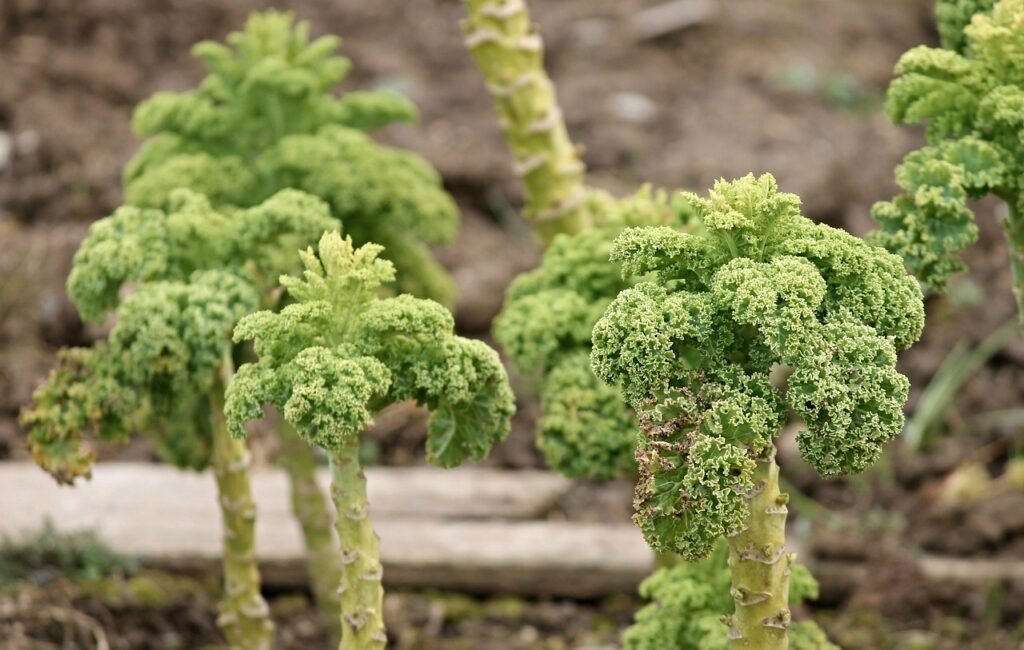
Kale
Kale is renowned for its exceptional nutritional profile, packed with vitamins, minerals, and antioxidants. This leafy green powerhouse offers a hefty dose of vitamins A, C, and K, along with calcium, iron, and fiber, promoting overall health and well-being.. One cup of cooked kale contains about 1 mg of iron.
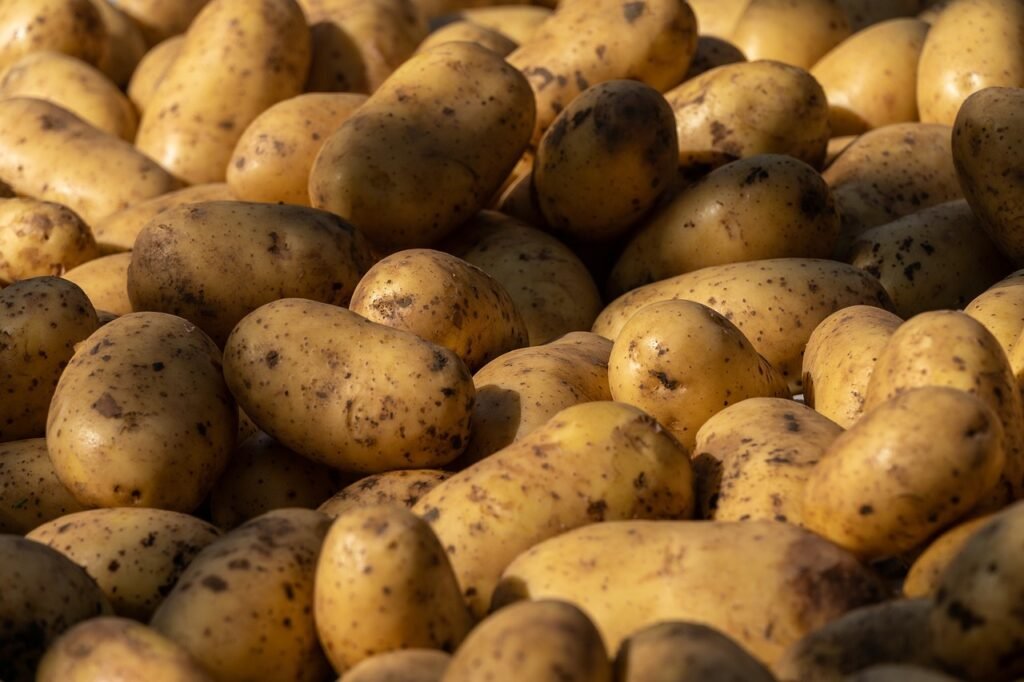
Potatoes
Potatoes, especially when eaten with their skins, are a surprising source of iron. One large baked potato contains about 3.2 mg of iron.
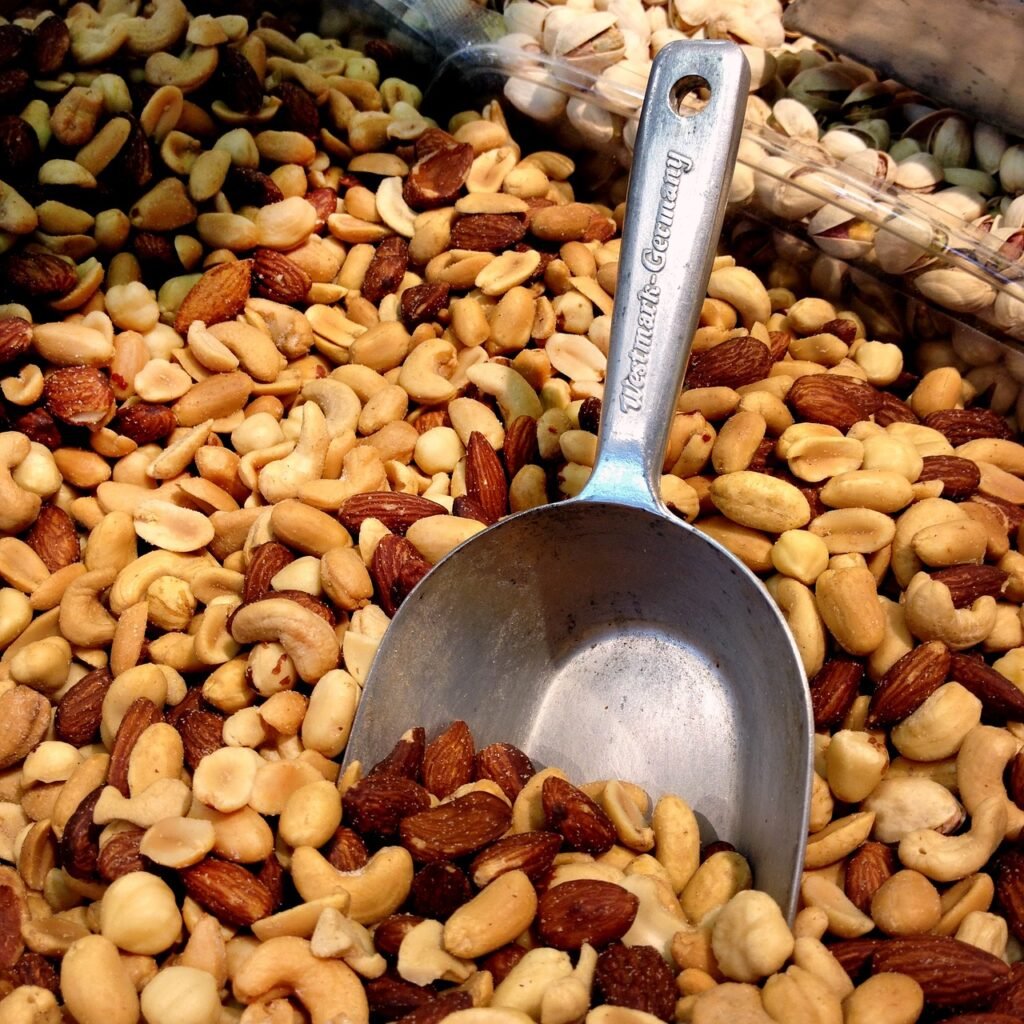
Cashews
Nuts are a convenient and tasty way to add more iron to your diet. One ounce of cashews provides approximately 1.9 mg of iron.
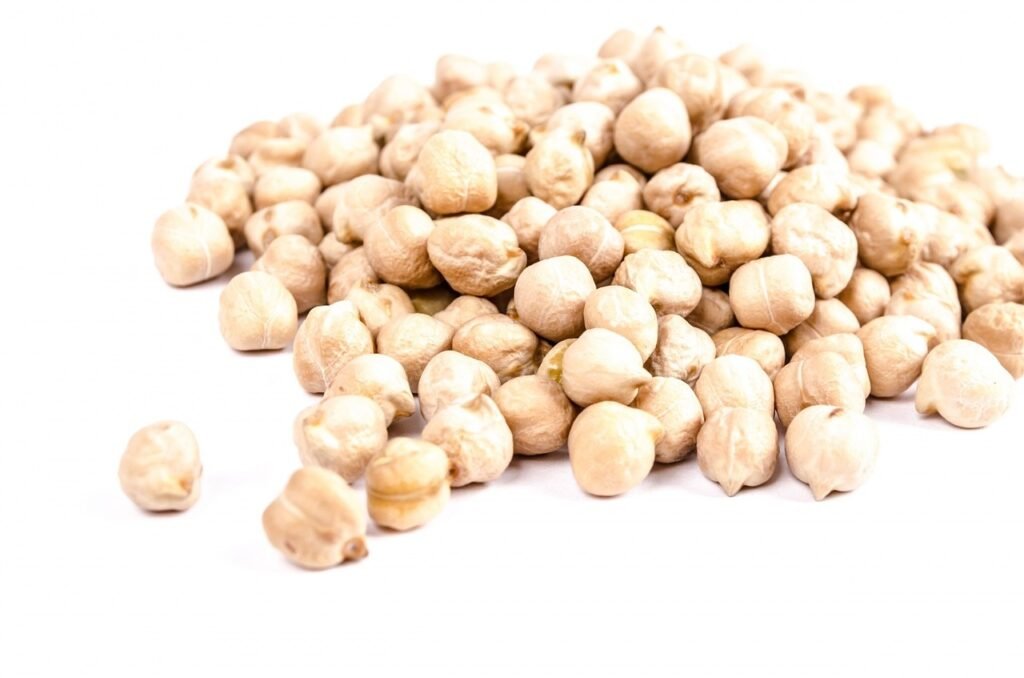
Chickpeas
Also known as garbanzo beans, chickpeas are packed with iron. Chickpeas contains fiber, protein, and folate, supporting digestive health, muscle repair, and providing vitamins like vitamin C, vitamin K, and vitamin B6 for immune function, bone health, and energy metabolism. Incorporating chickpeas into your diet promotes overall health and well-being. One cup of cooked chickpeas contains about 4.7 mg of iron.
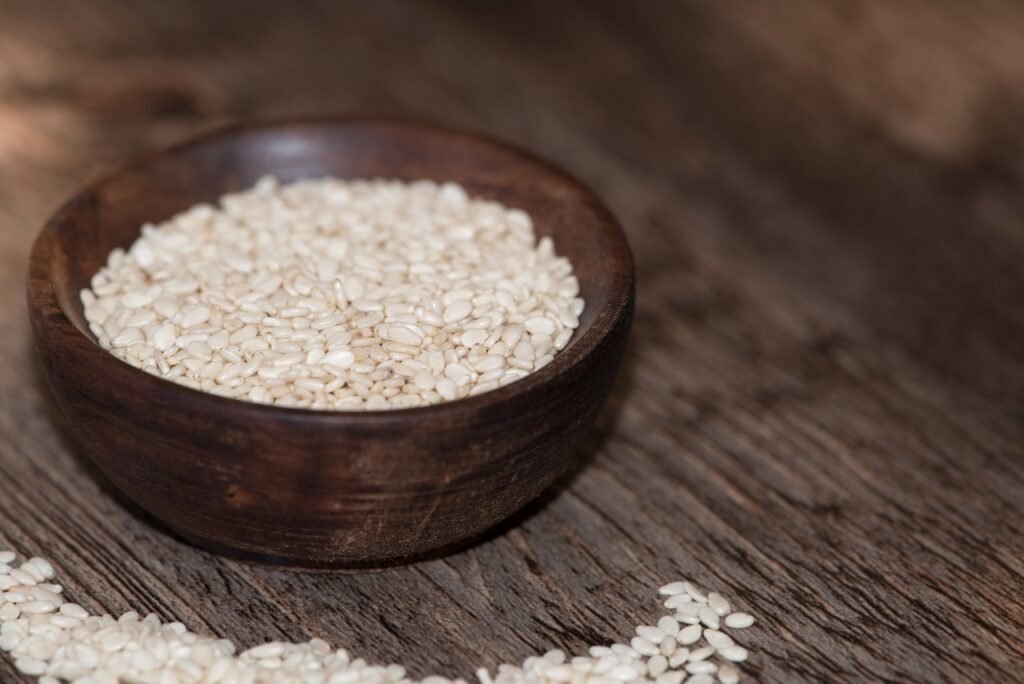
Sesame Seeds
These tiny seeds are iron powerhouses. One tablespoon of sesame seeds provides about 1.3 mg of iron.
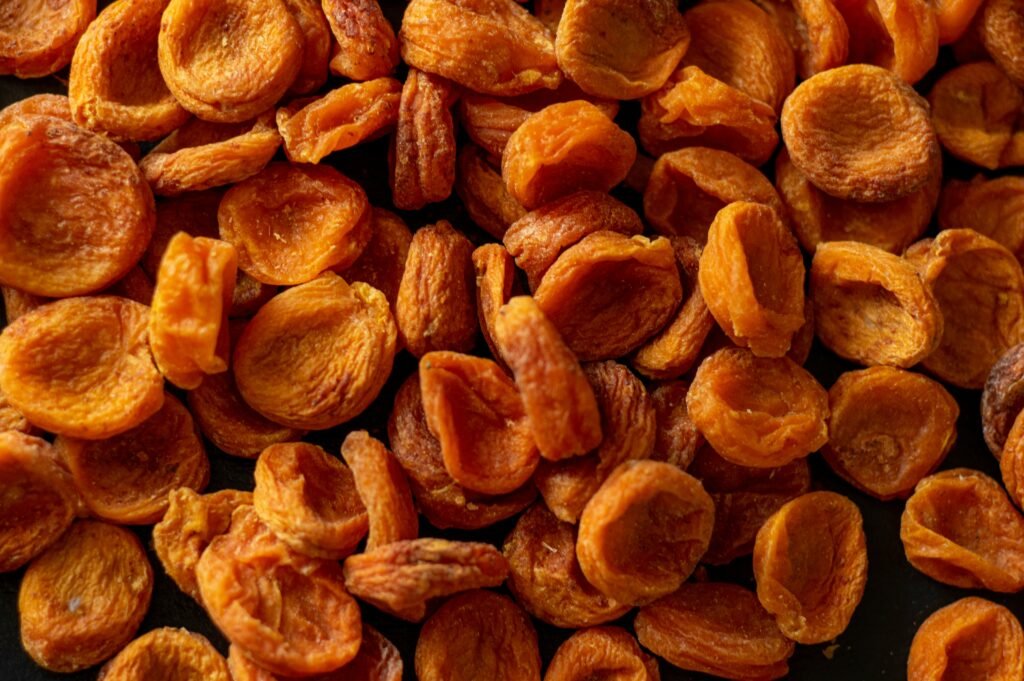
Dried Apricots
Dried apricots are rich in iron, vitamins A and E, and dietary fiber. They support healthy skin, vision, immune function, digestion, and heart health. One cup of dried apricot halves contains around 4.1 mg of iron.
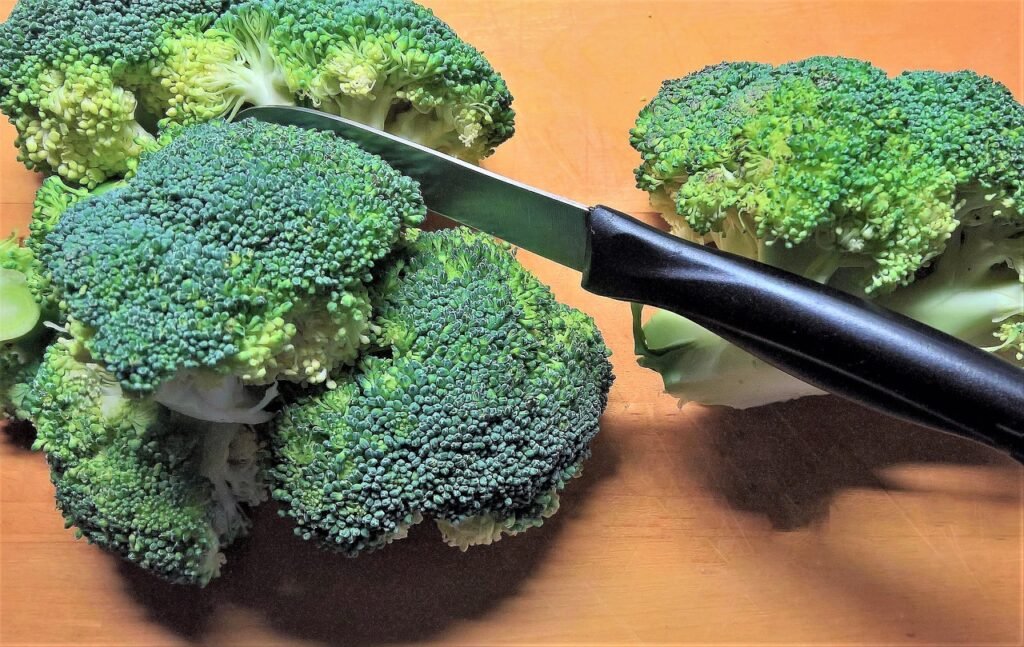
Broccoli
Broccoli is high in iron and vitamin C, which enhances iron absorption. It also contains vitamins C and K for immune and bone health, fiber for digestion, and antioxidants to lower the risk of chronic diseases. One cup of cooked broccoli contains about 1 mg of iron.
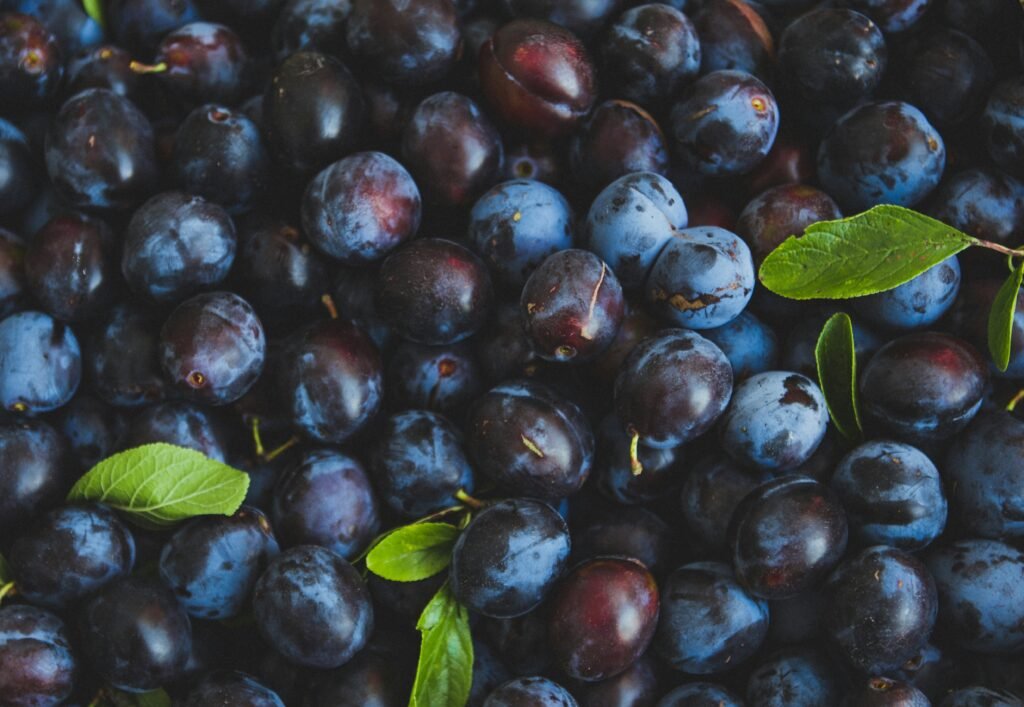
Prune Juice
Prune juice is another excellent source of non-heme iron. Also prune juice packs a punch in terms of health benefits, primarily due to its high content of essential vitamins and minerals. Rich in vitamin C, prune juice supports immune function and skin health while also providing a good dose of potassium, essential for heart health and blood pressure regulation. One cup of prune juice offers around 3 mg of iron.

Edamame
Young soybeans, or edamame, are nutritious and iron-rich. Is a nutritional powerhouse, packed with plant-based protein, fiber, vitamins, and minerals. These young soybeans promotes heart health, aiding in weight management, and supporting bone health. Additionally, edamame is a versatile and delicious snack or ingredient in various dishes, making it an easy and convenient way to boost your nutrient intake. One cup of cooked edamame contains about 2.3 mg of iron.
Incorporating a variety of these iron-rich foods into your diet can help ensure you meet your daily iron needs. Whether you prefer animal or plant-based sources, there are plenty of options to keep your iron levels in check. Remember, pairing iron-rich foods with those high in vitamin C, such as citrus fruits, tomatoes, and bell peppers, can further enhance iron absorption. If you feel that you need an iron supplement, you can consider taking one to ensure you meet your nutritional needs. A highly recommended option is the Blood Builder iron supplement with folic acid, which is highly regarded for its effectiveness.
